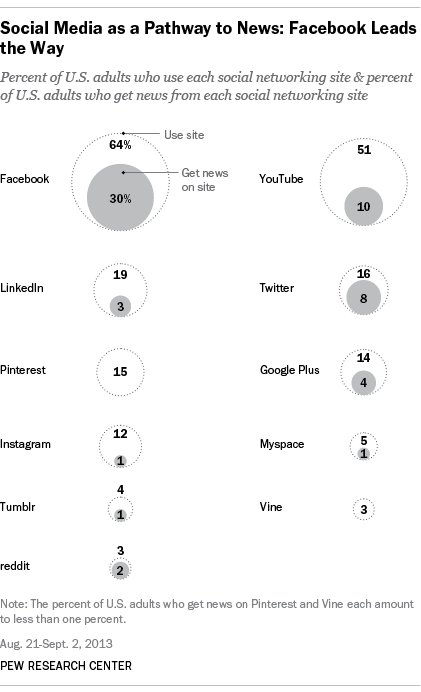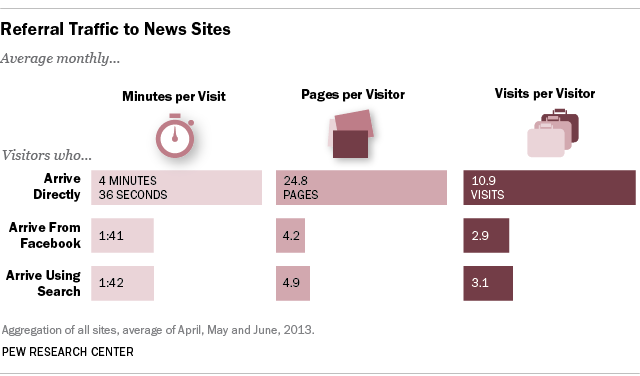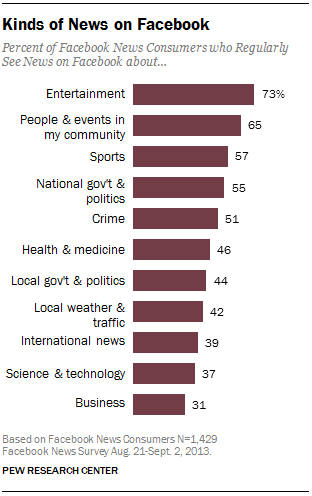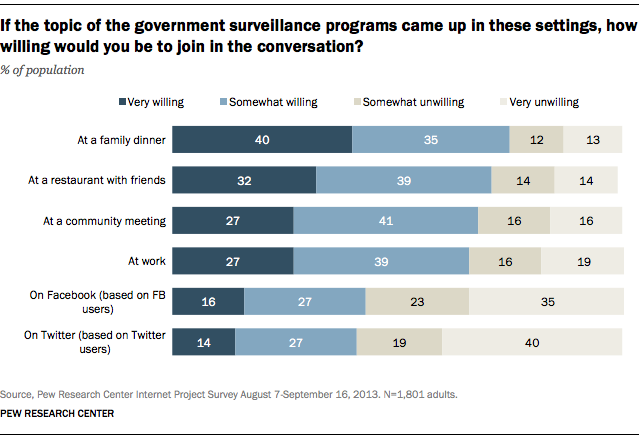The ever-growing digital native news world now boasts about 5,000 digital news sector jobs, according to our recent calculations, 3,000 of which are at 30 big digital-only news outlets. Many of these digital organizations emphasize the importance of social media in storytelling and engaging their audiences. As journalists gather for the annual Online News Association conference, here are answers to five questions about social media and the news.

How do social media sites stack up on news? When you take into account both the total reach of a site (the share of Americans who use it) and the proportion of users who get news on the site, Facebook is the obvious news powerhouse among the social media sites. Roughly two-thirds (64%) of U.S. adults use the site, and half of those users get news there — amounting to 30% of the general population.
YouTube is the next biggest social news pathway — about half of Americans use the site, and a fifth of them get news there, which translates to 10% of the adult population and puts the site on par with Twitter. Twitter reaches 16% of Americans and half of those users say they get news there, or 8% of Americans. And although only 3% of the U.S. population use reddit, for those that do, getting news there is a major draw–62% have gotten news from the site.
How do social media users participate in news? Half of social network site users have shared news stories, images or videos , and nearly as many (46%) have discussed a news issue or event. In addition to sharing news on social media, a small number are also covering the news themselves, by posting photos or videos of news events. Pew Research found that in 2014, 14% of social media users posted their own photos of news events to a social networking site, while 12% had posted videos. This practice has played a role in a number of recent breaking news events, including the riots in Ferguson, Mo.

How do social media users discover news? Facebook is an important source of website referrals for many news outlets, but the users who arrive via Facebook spend far less time and consume far fewer pages than those who arrive directly. The same is true of users arriving by search. Our analysis of comScore data found visitors who go to a news media website directly spend roughly three times as long as those who wind up there through search or Facebook, and they view roughly five times as many pages per month. This higher level of engagement from direct visitors is evident whether a site’s traffic is driven by search or social sharing and it has big implications for news organizations who are experimenting with digital subscriptions while endeavoring to build a loyal audience.

What’s the news experience like on Facebook?

Our study of news consumption on Facebook found Facebook users are experiencing a relatively diverse array of news stories on the site — roughly half of Facebook users regularly see six different topic areas. The most common news people see is entertainment news: 73% of Facebook users regularly see this kind of content on the site. Unlike Twitter, where a core function is the distribution of information as news breaks, Facebook is not yet a place many turn to for learning about breaking news. (Though the company may be trying to change that by tweaking its algorithm to make the posts appearing in newsfeed more timely.) Still, just 28% of Facebook news consumers ever use the site to keep up with a news event as it unfolds, less than half of those users would turn to Facebook first to follow breaking news.
How does social media impact the discussion of news events? Our recent survey revealed social media doesn’t always facilitate conversation around the important issues of the day. In fact, we found people were less willing to discuss their opinion on the Snowden-NSA story on social media than they were in person. And Facebook and Twitter users were less likely to want to share their opinions in many face-to-face settings, especially if they felt their social audience disagreed with them.


